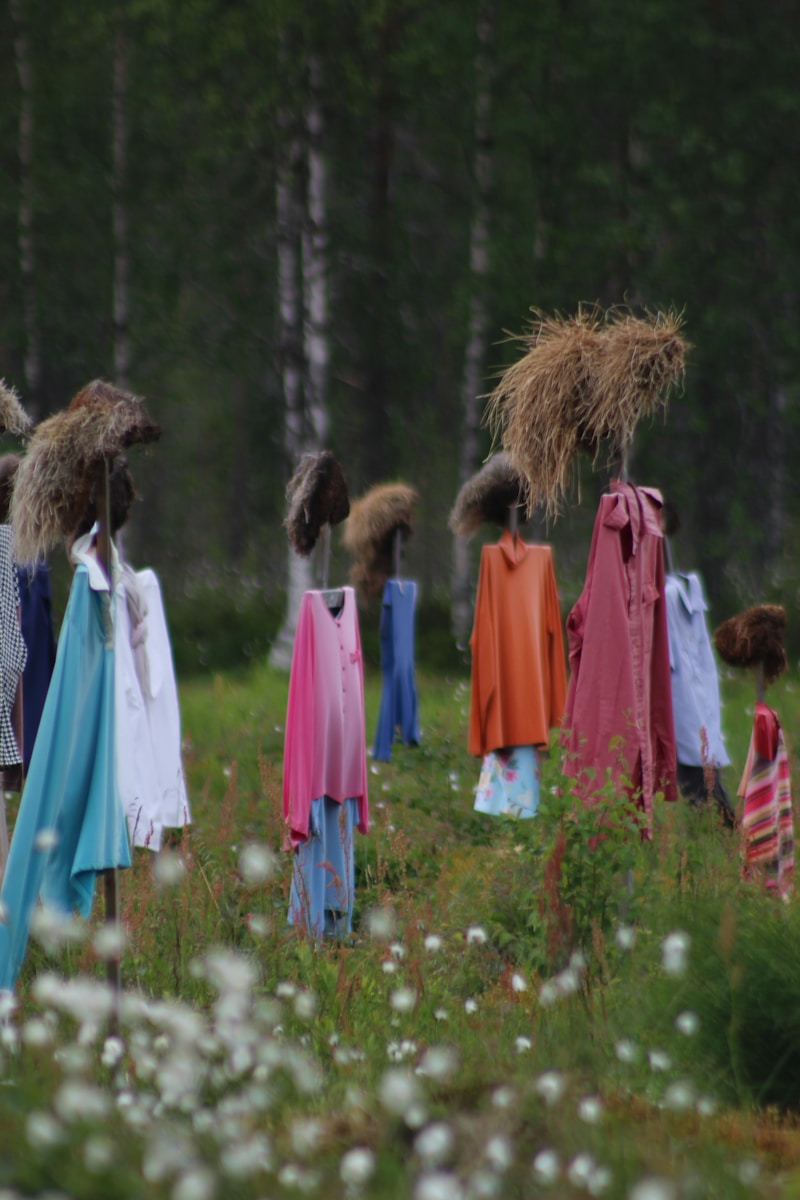
Life@55 & Kuebiko
Here I go again, letting my imagination drift beyond the everyday routine. I’ve been reflecting on how our daily lives often feel disconnected from the larger impacts of our actions. It’s a kind of existential dissonance—like becoming a scarecrow, standing still while the world spins around us. In wealthy societies, our everyday activities—driving, using smartphones, consuming food and water—are entangled with systems that exploit people and the environment. We contribute to environmental damage and labor exploitation, yet live ordinary lives, right?
Still, life within this extractive system brings its own kind of pain. Even if it’s not acute suffering, knowing we’re part of harmful structures without the power to change them creates a slow, chronic distress. Scholars call this feeling Kuebiko, named after a Japanese Shinto deity—a scarecrow who knows everything happening around her but cannot act. The term has come to describe modern helplessness: being aware of suffering but unable to change it.
Kuebiko also reminds me of Turnip Head from Howl’s Moving Castle, a character who can’t move but plays an important role. This metaphor captures the sadness and paralysis we feel when confronted with global crises. The adoption of cultural terms like Kuebiko shows how English sometimes struggles to express complex emotions. Ariano Suassuna, a beloved Brazilian writer, once noted how English can seem “poor” compared to Portuguese, which offers words like “saudade” to capture deep, untranslatable feelings. Both Kuebiko and “saudade” remind me of the richness of language in expressing what we sometimes cannot put into simple words.
A scarecrow stands between us and the crows, protecting the crops. It doesn’t actively move, but its presence alone makes a difference. This contrasts with the internet, which often amplifies pain without offering solutions. Like the scarecrow, we may not be able to change the system entirely, but we can still influence our environment in small ways.
I’m starting to feel like a Western Kuebiko—aware of the damage but unsure how to act. Modern life often leaves us feeling rooted in place, knowledgeable but powerless. Yet I try to manage this stillness by staying informed and making conscious, small changes—whether it’s reducing waste, supporting ethical products, or speaking out. These actions may seem insignificant, but they offer a sense of agency in a world where much feels out of our control.
Perhaps Kuebiko teaches us that standing still doesn’t always mean inaction. Being aware and acknowledging suffering is a form of quiet resistance. Like a scarecrow, we may be immobile, but our awareness itself can influence change. We might not always be able to move the world, but we can still hold space for hope and empathy.
Image courtesy of Unsplash
Comments are closed.